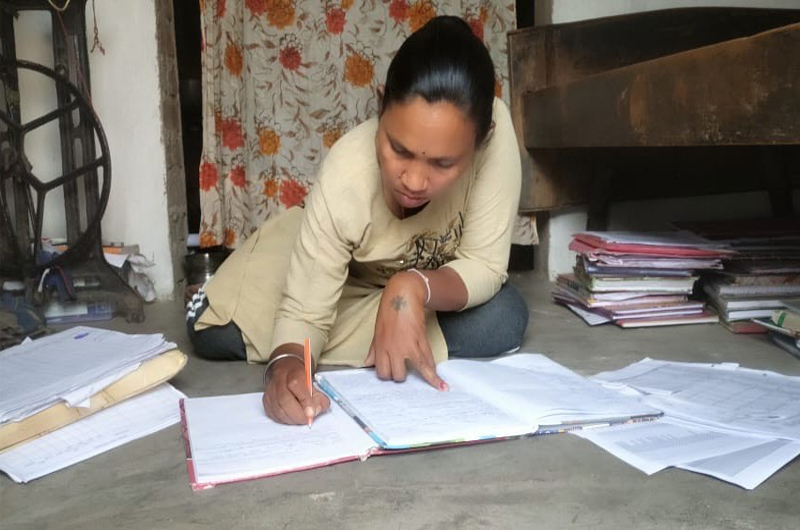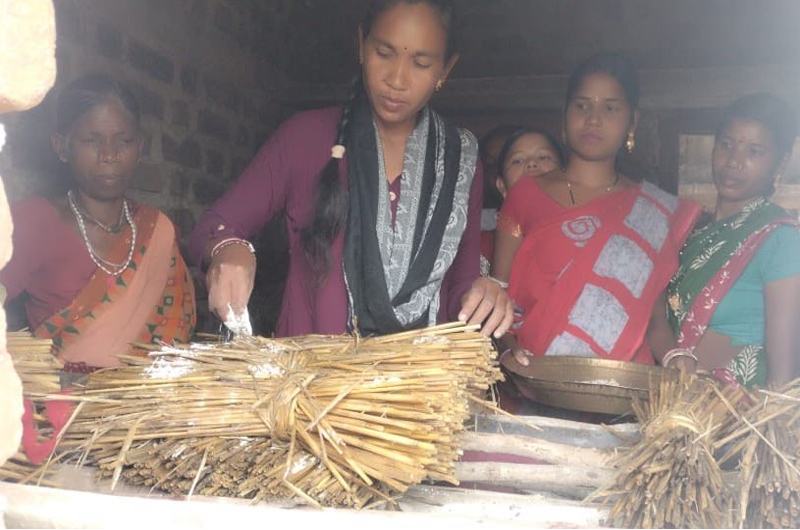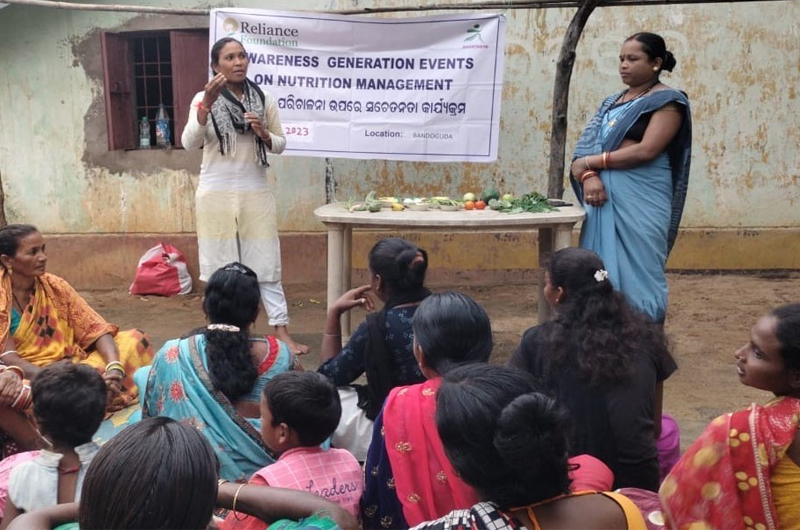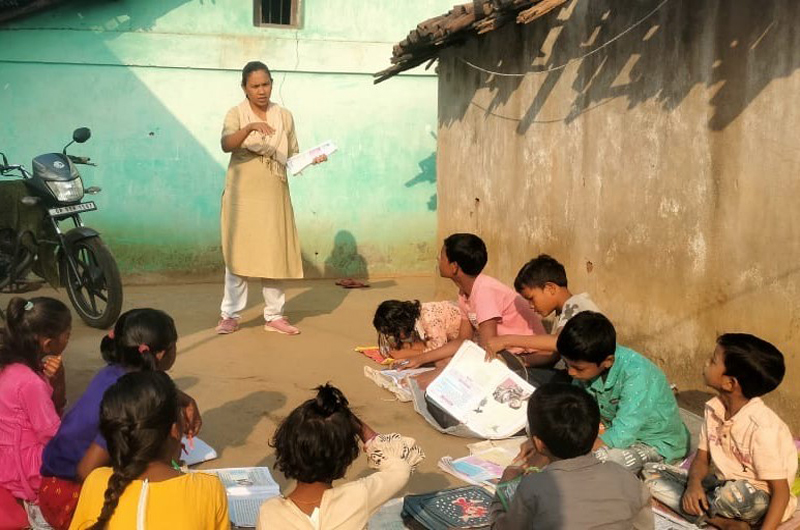This is an inspiring story by Ipsita Ruchi about Gwadi Bhoi, a tribal girl from the remote village of Dedar in Junagarh Block in Odisha’s Kalahandi District. Enrolment in a child labour school turned out to be a life-changing opportunity for her. Even as she struggled between duty and dreams, she remained committed to development of local communities, says Ruchi. Gwadi’s untiring efforts eventually resulted in her being recognised as a change-maker. Today, as an extension worker with Karrtabya, Gwadi plays a vital role in the economic empowerment of farmers and women across 21 villages. Choosing education was a decision that not only transformed her life but also inspired many others in her community
Gwadi Bhoi, a tribal girl from the remote village of Dedar in Junagarh Block, Kalahandi District, Odisha, spent her childhood as a goat herder. She doesn’t recall exactly how many years she did such work but remembers, “I did that until the child labour school was established in our village.” Her parents, who were daily wage labourers, took up goat-rearing to support their livelihood. As part of the family’s responsibilities, Gwadi was in charge of herding the goats. Each morning, she would take them to the forest along with other children from the village. At midday, she would return home for a brief meal before heading back to the forest, only returning in the evening.

“I never thought of going to school when I was a child. My days revolved around the goats and other herding children in the forest,” Gwadi recalls. However, her life changed in 2000 when she was a small girl. Karrtabya, a voluntary organisation based in Bandakutra Village, Kalahandi District, identified her plight and convinced her parents to enroll her in a child labour school run by it in her village. “That was a turning point in my life,” she says.
Gwadi vividly recalls the inner turmoil she faced as a young girl, torn between her duty towards her family and her dreams for a better future. Watching her mother shoulder the burden of both household chores and goat-herding, Gwadi struggled with guilt. “My mother would wake up much earlier than before to finish all the household work before taking the goats to the forest,” she reminisces. “She would return home carrying a heavy load of firewood, exhausted yet unwavering.” Seeing her mother’s hardship, Gwadi often felt the urge to leave school and help her. “I wanted to stand by her side, to share her struggles. But she would only allow me to do so on Sundays,” she recalls.

Despite the emotional conflict, Gwadi persevered with her education. She spent three years in the child labour school where her exceptional performance earned her a place in Class 7 at a government residential school in Junagarh. It was yet another turning point in her life, one that set her on a path she had once doubted she would ever take. Determined to break the cycle of hardship, she pursued her studies diligently and eventually completed her graduation.
With a heart still connected to her roots, Gwadi chose to give back to her community. She joined Karrtabya as a volunteer, a role that was welcomed warmly by the organisation. For the past 15 years, she has dedicated herself to improving education, healthcare and economic opportunities in rural communities. Her work has not been without challenges, but she has remained steadfast in her mission, particularly in the uplift of women and children.

healthcare and economic opportunities in rural communities.
Today, as an extension worker with Karrtabya, Gwadi plays a vital role in the economic empowerment of farmers and women across 21 villages. Her contributions have not gone unnoticed. In recognition of her unwavering commitment to social development, the Kalahandi District administration honored her as a Change Maker at a special event on International Women’s Day at the Maa Manikeswari University ground in Bhawanipatna.
Gwadi’s journey is a powerful testament to perseverance and the difficult choices required to create lasting change. Once torn between familial duty and personal aspirations, she chose education—a decision that not only transformed her own life but also inspired many others in her community. Yet, one dream remains unfulfilled—for her parents. “My parents were granted entitlement to two-and-a-half acres of forest land under the Forest Rights Act. This land was crucial for their livelihood, but one day a palm farmer suddenly claimed ownership. With the backing of revenue officials, he took possession of the land and planted palm trees there with government support. Despite our repeated grievances to the district administration, our efforts to reclaim the land have been in vain,” she shares with deep concern.
(Ipsita Ruchi teaches English Literature to graduate and postgraduate students at Khalikot Unitary University in Brahmapur. She met Gwadi Bhoi at the office of Karrtabya where Gwadi now works.)



 from Webdoux
from Webdoux